
John Butler, director of films like The Stag and Handsome Devil has the immediate, disarming charm of the Irish when he offers me and Matt a Bloody Mary. And yes, that Matt Bomer, who looks as handsome in person as he does on camera.
The two banter about Matt’s pant style and John’s wild night at the after-party for the world premiere of Butler’s film, Papi Chulo, starring Bomer. The film is about a Los Angeles based gay weatherman (played by Bomer), on the verge of a breakdown. In a fit of desperation, he hires a Latino migrant worker (played by Alejandro Patino) to repaint his deck, and the two begin an unlikely–if zany–friendship. (At the time of this writing, Papi Chulo does not have a North America distributor. A release date is pending.)
The three of us met up at the Toronto Film Festival to chat about the movie and all things gay & awesome.
As it turned out, the nearby coffee bar didn’t have Bloody Marys. What we didn’t expect was just how inquisitive the auteur and his star would get with us.
How about we take this to the next level?
Our newsletter is like a refreshing cocktail (or mocktail) of LGBTQ+ entertainment and pop culture, served up with a side of eye-candy.
John Butler: David worked at Disney.
Oh lord, are we doing this?
JB: We’re doing this. Tell us…
There’s a movie in it somewhere, but I’d get sued.
Matt Bomer: Yeah, you’d be working against a pretty big system there.
I suppose we should actually talk about the film. I saw it last night at the premiere and was really surprised as to how much I enjoyed it. At Queerty we’re fans of both of you guys. Handsome Devil recently came up in a piece that I wrote about gay back to school movies.
JB: Which is becoming a sub-genre of films, isn’t it?
It is. And we love when you, Matt, Instagram anything.
MB: Oh thanks.
This is an interesting companion piece to Handsome Devil because they are both about unlikely friendships, and people desperately in need of friendship. What is it about that subject that draws you to it? Why is that a theme in your work?
JB: In my life, I suppose I have really found the healing power of male friendship to be something so valuable to me, and underrepresented in film. I’m a big fan of buddy movies, generally speaking, but I’m fascinated by how healing and how important that relationship dynamic can be. I think it’s just really fun to play along with it because platonic friendship is a form of love as well. So there’s a loving tension that starts to occur, between two characters that you know to be friends. So it’s just enjoyable to play around with it, and how it feels, and how it’s represented, and how an audience can receive it. So yeah, so it’s always been a big thing for me.
Related: Straight guys keep covertly gushing about Magic Mike to Matt Bomer
And I think very often men cherish their friendships so much because it’s the space where you’re not asked too much about your feelings. Precisely because of that, they don’t feel too attacked. People aren’t always saying, How are you feeling, how are you feeling? if you’re a guy. So they can feel safe not being interrogated.

So what was the genesis of this story for you?
JB: I’ve spent so much time in LA over the years. I did the early years of being there, unsuccessfully, frequently alone, trying to navigate the city. And I just used to drive by Home Depot and see the lines of men, Latino migrant workers, which is something you don’t see in Europe. It just triggered an idea, whereby you start to wonder how that situation evolved, and what is the dynamic of those people. And if you’re lonely, you wouldn’t mind just talking to one of those people. So it’s a real life, you know? You take a little scene you see by the side of the road and a what if story emerges.
So why did you go to Matt with the project?
JB: Best actor for the job.
That’s a good answer. When did you get the script, Matt?
MB: I was sent the script by my agent. When did we sit down? We had a call, about a year ago…
JB: We did a Skype session, that was the first time we spoke.
MB: Skype, that’s right. Yeah, so that would have been late summer, 2017. I fell in love with it immediately, and I thought it was such a unique story. I thought John’s writing was so alive and captured a real human tone. And the fact that there were really serious elements and stakes in play, there was also a really human, lived-in humor among their circumstances, which I loved. To me, that’s what life is anyway. And I immediately watched Handsome Devils and The Stag, which I loved. I thought it was a really raw, vulnerable character to play, and I thought this is a great director to put myself in the hands of.
So you agreed right off the bat?
MB: We had our Skype meeting, and we sat down in LA…
JB: That’s right, ya.
MB: And we had a breakfast together. And I adored John from the get-go. I could tell just from talking to him, the way he liked to work, and that it would be something that we—the kind of work you need to do in this type of film in particular, you don’t just want to be left in the lurch by your director. So I was really engaged immediately and just fell in love from there.
Related: Oops! Matt Bomer left naked and soaking wet in front of a packed crowd
Well, and for you Matt, this is the first time I’ve seen you do this level of comedy. And I was surprised how much I enjoyed you in it. What was it like for you as an actor to do a more comic role?
MB: I know that because of Normal Heart and some of the things I’ve done, people typically associate me with drama. I had done largely comedy until I started working in the industry. For whatever reason, I started getting cast in dramas, which is very flattering. I’m very grateful for that. But I was actually in classes—one of the levels at The Groundlings [the legendary LA comedy troupe] when I got White Collar. So I always really enjoyed comedic work, I just never had the opportunity to do it. It’s really a testament to John because there’s nothing that I had done for the public eye that would ever suggest I could pull this off in remote fashion! He believed in me for some strange reason.
JB: I always think, you just look at YouTube. You look at people’s interviews…
MB: On talk shows, and stuff?
JB: That’s when you can tell.
MB: I have to step up my talk show game.
[Laughter]
Well, and you have another great comic talent, and Groundlings alumni, which is Wendy McLendon-Covey. I feel a need to just drop her name. Anytime anyone uses her, bravo. The world needs more of her.
MB: I agree. And I’ll be honest with you, some of our first scenes were with her, and it was so helpful to me. She was so helpful to me in finding the tone, because when you’re just starting out, you’re still finding the tone of the movie. And she was just invaluable.
JB: It’s always the case, but some of the stuff that’s not in the film from those scenes…
MB: Yes, oh my god…
JB: There’s some gold.

I can imagine. So, now you’re based in LA, Matt?
MB: Yes.
And do you, John, now live in LA also?
JB: I’m a citizen of the world. I live in Ireland but I usually go for five or six months in LA, do half the year there. I did two years there, 2006 & 2007.
As much as this is about someone looking for friendship, it’s also a story about Los Angeles in many, many ways. You do a great job of capturing the quirky beauty of the city and adding little touches of authenticity. By the way, I don’t think it’s a knock against the film to say, I was sitting there snickering at we’re in Runyon Canyon, will you take my picture? Because every gay man who has ever walked Runyon Canyon has asked that question.
[Laughter]
But my question is, for you as an Irishman, did you worry about that authenticity?
JB: That’s a good question because, obviously, it’s something you think about. But storytelling is so deeply subjective. Once your own perspective—the writer, or the character’s perspective—is clear, I think, that whatever that person sees, or whatever you write is going to be fine. It’s going to check out because it’s your vision of the city. The other thing I’ll add to that is that LA is a city of transplants anyway. So almost the most authentic way of looking at it is as a person who just arrived there.
So then what esoteric insight does that give you?
It gives you clarity as to what’s different about the city. But also, if you come from outside America, there’s a way of looking at it. There’s a romance that you find in the mundane that, I don’t know, Americans from other cities don’t see. And there are so many things about LA that me, as a European, have so much allure for me. Tiny minutiae. And I think the migrant workers standing outside the hardware store is an example of that. Something that is exotic-seeming to me, but is commonplace for Americans to see. And we’re a nation of emigrants anyway, the Irish because frequently our stories take place outside the country. So in a weird way, it’s an Irish story too. We’re always displaced.
MB: I think that, also, you capture a very specific kind of loneliness that is specific to LA. Driving around, time alone you have at home, in your car…
What is it about LA that makes it such an isolating city?
JB: Your character says it: “Do you think LA is haunted?” And it lands as a joke, but it’s a good question.
MB: I think because it is a place people come from all over, seeking connection, seeking fame, seeking upward mobility. And sometimes that works out, and sometimes it doesn’t. And sometimes you get authentic relationships, and sometimes you get only transactional, rooted in ambition. And I think anyone—and I’m certainly speaking pre-Simon [Bomer’s husband] and the kids, I had sometimes in LA that were extraordinarily lonely.
Really?
MB: Driving around in my car, listening to books on tape for hours on end, and going from meeting to meeting. Sitting at home alone twiddling my fingers. But I think the movie also gets a universal loneliness, in that we all seek these connections in our phones, in our devices. You know, with Siri—that try to replace what’s missing in our human connections. And it’s only in a really authentic, emotionally vulnerable interaction with another human being that we can actually really seek gratification.
You mentioned Simon and the kids. I’m curious—I’ve noticed your choice of roles in the past few years are stories that speak more to the community.
MB: Yeah.
Like Normal Heart. Like Boys in the Band. Do you feel like you have an obligation as a gay dad to tell these stories? So your kids understand the history?
MB: Well I think it’ s inherently part of my story, so I try to be part of those stories. But I try to just tell the stories that I really love and respond to, to be honest with you. And this is one of those. And looking at the script—I would have jumped at the chance to play Sean even if he were heterosexual. You know, it’s a small part of who he is and what’s going on in the film. But, yeah, I love telling all kinds of different stories. I hope I get to tell more LGBTQ stories. I hope a chance to do other stories. That’s part of being an actor—hopefully, to play all different kinds of roles. I’m really proud and thankful that I get to be part of these stories, and hopefully get to continue.
How has being a dad changed your process? I’ve heard a lot of actors say being a parent changes a lot of things, obviously, but it completely changes the way they approach characters now.
MB: Yes and no. If I were playing a parent I think it certainly would inform that a great deal. In terms of preparation, I don’t want my kids to think—I’m doing a job after this that, honestly, is partially for our 13-year-old. It hasn’t been announced yet…
Am I allowed to ask?
MB: I’m not allowed to say. I signed an NDA.
[Laughter]
MB: I try to just teach our kids that I’m an artist. In terms of my process, it’s just a matter of compartmentalizing really. When we were doing this film, I actually moved out of the house and into a tiny studio apartment. It was so all-consuming, and I wanted to be in that experience of real isolation and loneliness and give myself over to the film as much as I could. And in the day-to-day scheme of things, it’s more about when can I get the work done I need to get done before they get home from school and I have to help with homework.

Speaking of esoteric bits, there’s a joke in here about the three of us logging onto Grindr to check out the Toronto locals.
MB: You should! Toronto has a huge LGBTQ scene.
I know, but I’m jet-lagged, and I look like hell.
MB: You look great. You have great light on you.
Well, the Grindr jokes are hysterical, but I’m not sure the straight people got the bit about all the torsos coming up.
[Laughter]
JB: All those screen names are my friends.
Oh, are the pictures of your friends too?
JB: No, not the pictures. I wish.
I suppose that speaks to the isolation question again. What does it about our culture that you can order sex out of a digital catalog now, but that doesn’t really fulfill the intimate needs that we have?
JB: It’s funny, I’m defensive about the apps, sort of, in a way. I’ve made some great friends from the apps. I think it’s a question of how one chooses to engage with that stuff. It can be fantastic, and obviously, it can be greatly problematic. You have to figure out what your responsibilities are, how considerate you are to people. That’s all sort of governed by your own moral code; it’s all up to you. I think it can be great and I do think it speaks to Sean’s isolation, that all his interactions are colored through a screen. But I think that’s just subjective to the character. I think it’s a matter of personal responsibility.
Papi Chulo has a release date and trailer pending. Trust us, it’s worth waiting for.







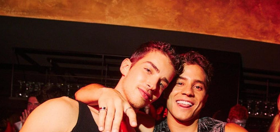
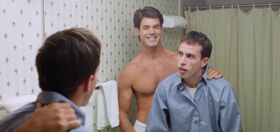


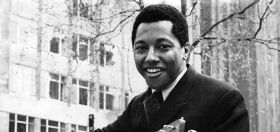
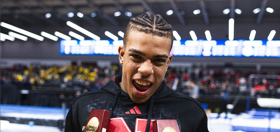




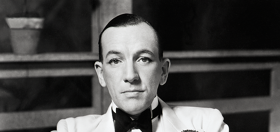
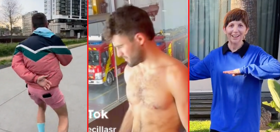
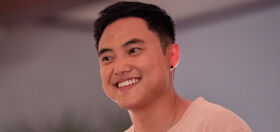

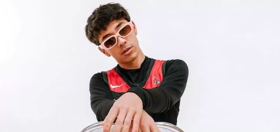
Josh447
Such a touching interview. I was floored to hear MB found LA to be isolating and lonely. Yet in a bizz where rejection is constant I’m sure it’s paramount in that industry. I lived there for years and found it more to be like a huge circus or county fair with big top after big top of different things to do. Something new and different around every corner. Play, that’s the big draw for many.
I found JBs take on viewing LA from a foreigners eyes fascinating to imagine.
I also like JBs take on cruising apps. It’s all what you make it. Authenticity seems like a number one priority for him.
Looking forward to seeing this film. The script and lead actor seem well fitted. And then, there’s looking at MB. What’s not to like?
Johndoes
I love how there isn’t a single trailer for this movie.
Josh447
If you read the article you’d know why, it doesn’t have U. S. distribution yet.
Josh447
At end of article…. “Papi Chulo has a release date and trailer pending. Trust us, it’s worth waiting for.”
RobtheElder
I remember when young gay actors went way out of their way to establish identities as far from anything “gay” as they could get. It’s refreshing to have a handsome gay married man with children take a revealing definitely gay role and to discuss it with such candor, embarrassed by nothing, and proud of their past assignments… RobtheElder